Things You'll Need
Antibacterial soap
Paper towels
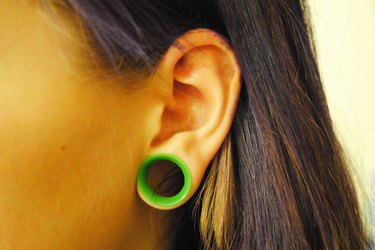
Piercing fans who have chosen to stretch their earlobes may find that when they get to larger gauges, traditional wood, bone, glass and metal plugs can become quite heavy. Hollow, flexible silicone plugs are a lightweight solution that can be a bit unusual to insert at first, particularly if your lobes aren't stretched very large. The bigger the hole in your earlobe, the easier it is to insert silicone jewelry into your piercing. Very small gauges may require the help of a professional piercer.
Step 1

Lather up your hands and your earlobes with antibacterial soap. Use warm water and rinse thoroughly. If your silicone plugs are new, give them a wash as well. Dry your skin and your plugs with clean paper towels.
Video of the Day
Step 2
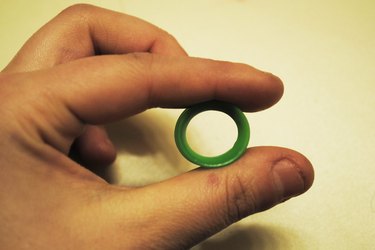
Hold the silicone plug so you are looking straight through the hollow middle.
Step 3
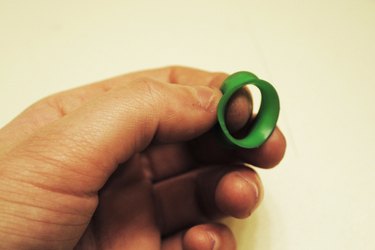
Press the top of the tunnel toward the center with the index finger of the hand in which you are holding it.
Step 4
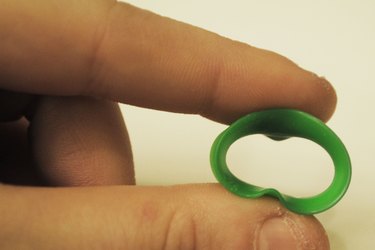
Press the sides of the tunnel inward toward each other, so you have folded both the top and sides toward the middle.
Step 5
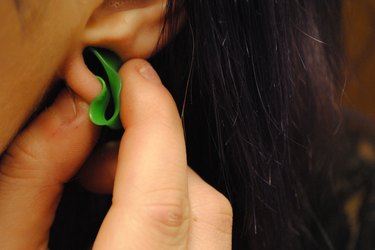
Insert the folded tunnel into your piercing and let go of it. The tunnel will expand to fit your earlobe.
Tip
For very small gauges, ask your piercer to assist you in inserting silicone jewelry. He can fold it with a hemostat to help guide it into your ear.
Warning
Do not attempt to stretch a piercing with silicone jewelry. Stretch with surgical stainless steel or glass, then insert silicone tunnels when the stretch is fully healed. Healing after a stretch usually takes one to two weeks.
Never insert jewelry into your body that another person has worn, no matter how well you know the person or how clean the jewelry seems.
Video of the Day